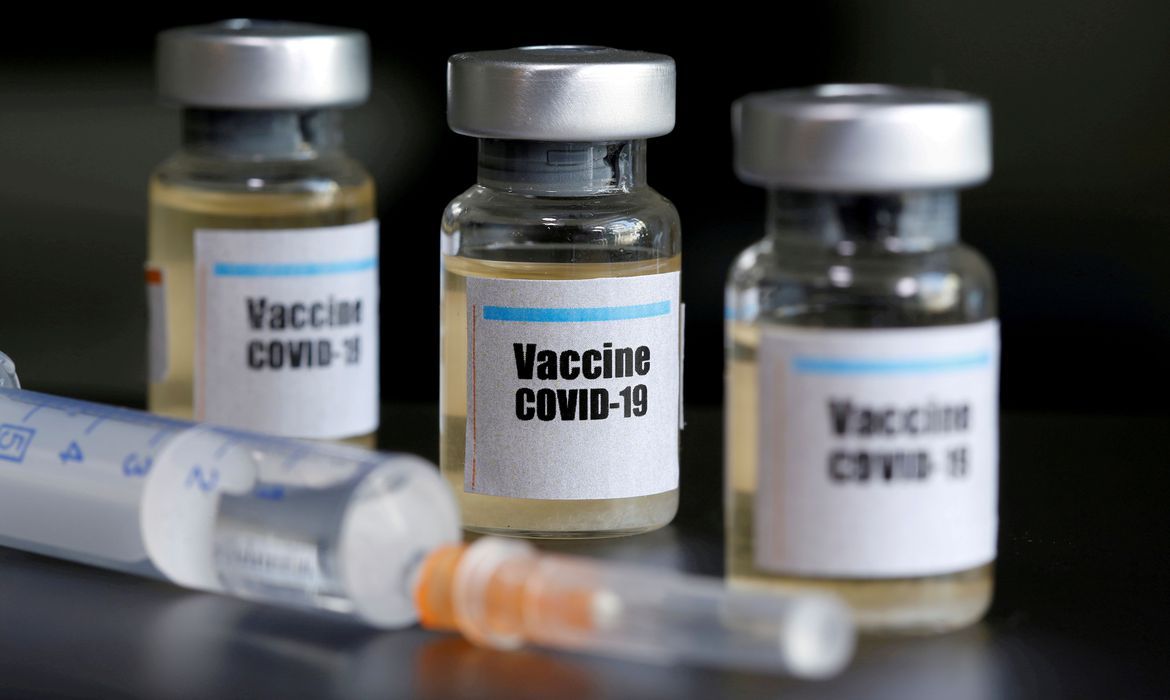RIO DE JANEIRO, BRAZIL – The rush to find a vaccine against the novel coronavirus is very fierce. Some 136 are currently in development, some more advanced than the others. The Coronavac, manufactured by China’s Sinovac, is between production stages 1 and 2.

According to Bloomberg, over 90 percent of the people who were given doses of this vaccine produced antibodies against Covid-19 within 14 days. Another successful candidate is Oxford University’s vaccine in the UK, which is in stage 3 of testing.
Many wealthier countries are investing heavily to find a cure for Covid-19. In May, the United Kingdom invested US$79 million (R$427 million) in the Oxford program in exchange for receiving 30 million doses. Meanwhile, the United States has secured 300 million doses of the same vaccine by signing a US$1.2 billion agreement with British pharmaceutical company AstraZeneca.
Germany, Italy, France, and the Netherlands have also not lagged behind, and have signed an agreement with the same pharmaceutical company to receive 400 million doses by late 2020. And on June 17th, the European Union created a European Vaccine Strategy to ensure access to protection for all members of the economic bloc and US$2.3 billion may have been invested to that end.
According to the Race for Life report, produced by EXAME’s investment and research analysis division, research for the development of a vaccine has already been funded to the tune of at least US$20 billion worldwide. Of that amount, US$10 billion were released by a US Congress program.
But what about the poorest countries?
For Dr. Jorge Elias Kalil, who is trying to develop a vaccine here in Brazil, if a vaccine is first discovered in more developed countries, the trend is that it will take time to get here. “Let’s say I’m the queen of England and the vaccine is discovered in Oxford. Who will I immunize? First England, then the UK, then I’m going to look at my partners, like the United States, Canada, and then we will see who will pay more, maybe China. Why would it be Brazil?” he points out.
Brazil, the country with the second-highest number of covid-19 infections in the world, with 955,377 confirmed cases, according to real-time monitoring by Johns Hopkins University in the United States, was chosen for testing by China’s Coronavac, Sinovac Biotech laboratory, in partnership with the Butantan Institute. According to Atila Iamarino, a doctor in microbiology and scientific publisher, this choice was due to the high level of infection in the country.
“Brazil is the stage for testing and vaccines because here manufacturers have an opportunity to quickly determine whether or not people who have been exposed to the virus are protected, because the epidemic continues to grow here. With the whole of Europe recording a decline in cases, with Asia also partly reducing its infection rates, this leaves Brazil,” he said in a live broadcast on his YouTube channel. Another factor that drives companies to test here is low entailed costs. “It’s good considering that these are vaccines that have already reached the safety testing stage, it’s not as if they were making guinea pigs out of Brazilians,” he said.
Kalil is not the only one concerned. While major economic powers have the cash to invest in their own vaccines, others lacking the same capital power, such as Senegal, rely exclusively on the actions of outside companies. Over there, biotech Mologic has developed rapid, in-house tests that can cost less than US$1. But how long can a vaccine take to reach these locations?
“We can’t rely solely on goodwill to ensure access to it. It took ten years for AIDS drugs to reach poorer countries,” Arzoo Ahmed of the Nuffield Council on Bioethics told the AP news agency.
The United Nations UNAIDS program said that African nations are now at the end of the line for receiving drugs in pandemics and that “it will be worse if a vaccine is found”.
With this in mind, AstraZeneca signed a US$750 million agreement with the Coalition for Innovations in Preparing for Epidemics (CEPI) and the Gavi Alliance, to secure 300 million doses for poor countries. It has also reached an agreement with the Serum Institute of India, which will receive 400 million doses reserved for low and middle income countries. The pharmaceutical company has assured that it will not profit from the poorest nations. The same was pledged by the American pharma giant Johnson & Johnson.
The European Union has assured that it will try to prevent the poorest countries from falling behind in the vaccination queue. “When we talk about a global pandemic, there is no room for ‘me first’,” said European Commission President Ursula von der Leyen last Wednesday.
China has also joined the fight for the development of a vaccine and has vowed to donate any vaccine that is successful first to countries on the African continent.
The initiatives of companies and countries are promising, but while a vaccine is not available, it is difficult to assess how quickly it will reach places in need and with more vulnerable healthcare systems.
To date, no treatment or vaccine has been clinically approved or endorsed by the World Health Organization to be specifically administered to patients infected with the novel coronavirus.
Source: Exame

